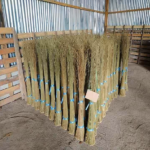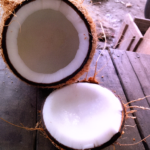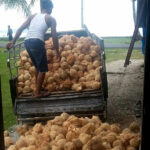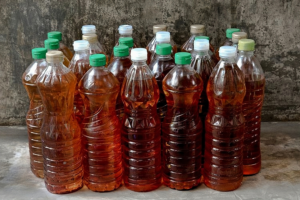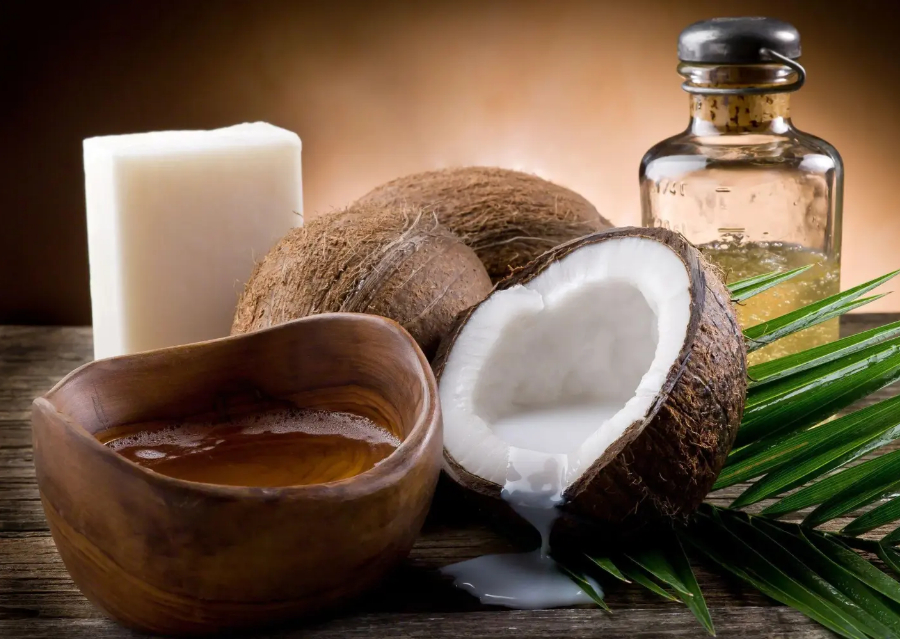
Government Encourages Downstreaming of Coconut Commodities
Coconut is one of Indonesia’s leading commodities. The huge potential of coconut needs to be developed through downstreaming which also involves MSMEs.
TPS — As a people-based crop, the coconut commodity in Indonesia has a lot of potential that can be further optimized. Therefore, downstreaming is important in developing coconut commodities, one of which is by involving micro, small and medium enterprises or MSMEs.
This emerged at the opening of World Coconut Day or World Coconut Day 2023 which was held in Gorontalo Regency, Gorontalo Province, Thursday (21/9/2023) evening. Running until September 25 2023, this annual event is organized by the Gorontalo Regency Government, the International Coconut Community (ICC), and the Indonesian Coconut Council (Dekindo).
Present at the opening event included, among others, Gorontalo Regent Nelson Pomalingo, Deputy Chairman of the People’s Consultative Assembly (MPR) Fadel Muhammad, as well as the Minister of Cooperatives and Small and Medium Enterprises’ (UKM) Macro Economy Staff Expert Rully Nuryanto. In addition, Executive Director of the International ICC, Jelfina C Alouw, along with ICC members from several countries and Chairman of Dekindo, Gamal Nasir, were also present.
According to Fadel, Indonesian coconut products have yet to rival those of the more advanced Philippine industry. Nevertheless, the potential of coconut-based processed products remains significant given the diversity of its derivatives.
“This coconut is a people’s plant, unlike oil palm which is created by industrialists and conglomerates. Coconut can become a long-term plant because it has many downstream industries,” he said.
Based on the 2022 Coconut Commodity Outlook released by the Ministry of Agriculture, Indonesia is the largest exporter of coconuts in the world, namely 58.37 percent. Meanwhile, for exporters of coconut derivative products, such as grated coconut and coconut oil, Indonesia is in second place after the Philippines, which contributes more than a third of world exports.
Fadel added that the development of coconut products needs to be encouraged through downstreaming. This is in line with the government’s vision, which not only focuses on the downstreaming of mineral commodities, but also the agricultural sector.
Minister of Cooperatives and SMEs, Teten Masduki, expressed his hope in a brief video that the WCD 2023 event can be a platform for SME players in the country to develop the potential of coconut commodities. This is in line with the government’s program to encourage downstreaming that involves the role of SMEs in the global supply chain.
Indonesia’s competitiveness and coconut exports need to be developed in an integrated manner from upstream to downstream. This means that farmers will be connected to offtakers, financing and the latest technology. Cooperatives will also play a role in providing quality seeds, absorbing farmers’ products and connecting them to markets.
“This is also an opportunity for Gorontalo Regency to introduce local commodities, such as coconut-based products, and other innovative potentials of the region, to be able to compete at the international level,” he said.
Rully added that coconut is one of Indonesia’s leading commodities. This sub-sector commodity of the agricultural sector contributes to the country’s foreign exchange earnings, provides employment opportunities, fulfills domestic consumption and raw materials for industries, adds value and competitiveness, and optimizes natural resources.
However, there are several challenges in developing coconut production, such as the age of the plants, pest attacks, insufficient maintenance, land conversion, financial problems for farmers, and poor plant varieties. Therefore, it is necessary to create an ecosystem in the coconut commodity upstream sector, for example, a coconut processed product house managed by cooperative.
“Indonesia’s competitiveness and coconut exports need to be developed in an integrated manner from upstream to downstream. This means that farmers will be connected to offtakers, financing and the latest technology. “Cooperatives will also play a role in providing quality seeds, absorbing farmers’ products, and connecting them to markets,” said Rully.
Increased capacity
This WCD event will bring together stakeholders, ranging from farmers, entrepreneurs, government officials, to the global coconut community, namely ICC. Jelfina said that the WCD event is a form of appreciation for the contribution of coconuts to achieving Sustainable Development Goals (SDGs).
Additionally, the WCD event is expected to become a platform for strengthening collaboration among stakeholders in the coconut commodity. “There will be technology and information transfer to help farmers improve their capacity,” he said.
Nelson Pomalingo added that WCD will be a momentum for Gorontalo and other coconut-producing regions to establish various business collaborations. These collaborations are expected to improve market access, build consumer trust, and ensure the sustainable social, environmental, and economic continuity of the coconut industry.
—- Source : https://www.kompas.id/baca/english/2023/09/22/en-pemerintah-dorong-hilirisasi-komoditas-kelapa


